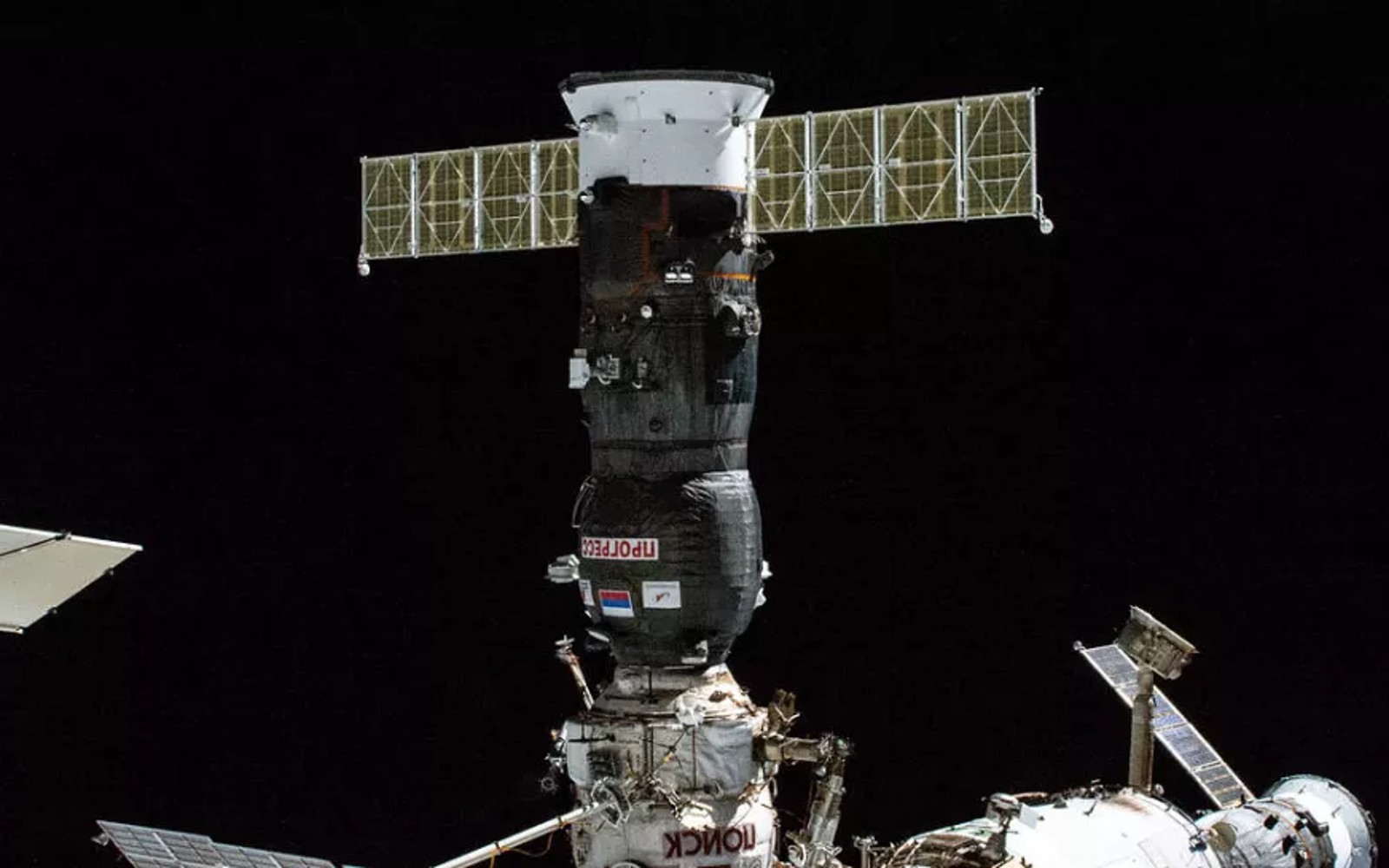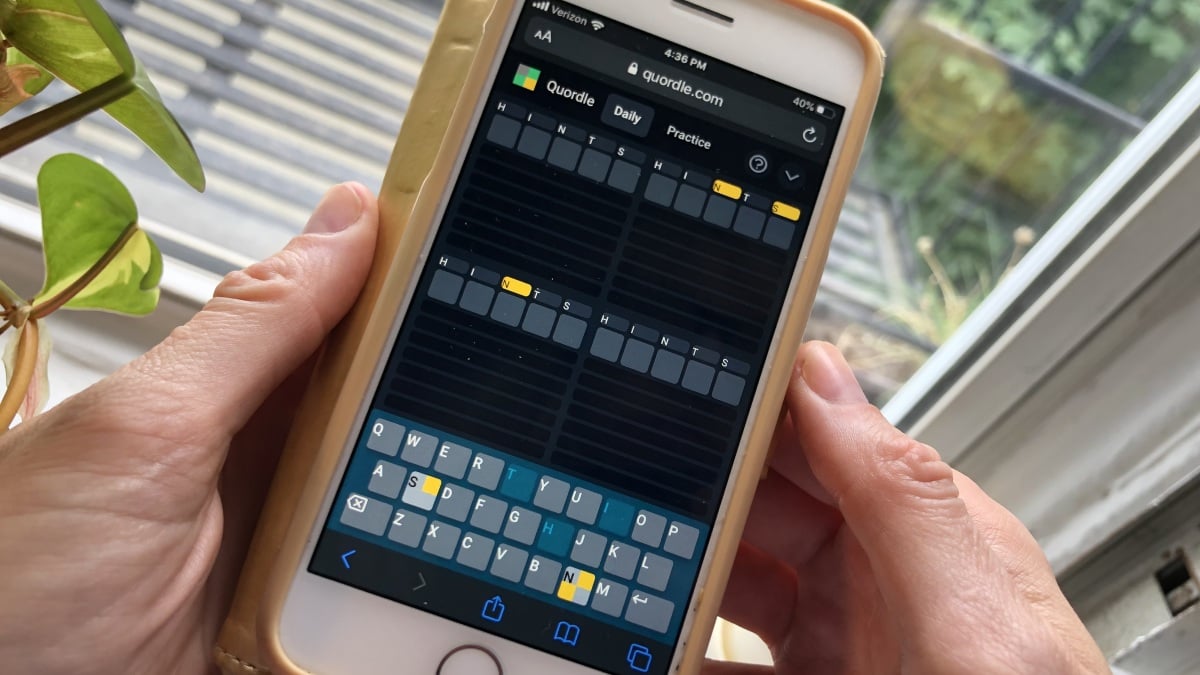Stop us if you’ve heard this one before, but a Russian spacecraft docked with the International Space Station has sprung a leak. On Saturday morning, Russia’s Roscosmos space agency disclosed on Telegram that a Progress cargo ship docked with the ISS had lost cabin pressure. NASA later said the depressurization was due to a coolant leak.
“The reason for the loss of coolant in the Progress 82 spacecraft is being investigated,” NASA announced. “The hatches between Progress 82 and the station are open, and temperatures and pressures aboard the station are all normal. The crew, which was informed of the cooling loop leak, is in no danger and continuing with normal space station operations.”
Per Space.com, Progress 82 arrived at the ISS on October 28th. Before Saturday’s announcement, the spacecraft was scheduled to leave the station on February 17th. It’s unclear if Roscosmos will move forward with that timeline as originally planned. Russia’s Progress spacecraft are designed to burn up in the Earth’s atmosphere after they complete their resupply missions, meaning there’s no way for Roscosmos to investigate the leak on the ground. The timing of the discovery comes on the same day that a second Progress spacecraft docked with the ISS, and less than two months after another Russian spacecraft sprung a leak at the space station.
In December, Russia’s Soyuz MS-22 spacecraft began leaking coolant just as cosmonauts Dmitri Petelin and Sergey Prokopyev were preparing for a nearly seven-hour spacewalk. Roscosmos later blamed the incident on an apparent meteoroid strike. Unless there’s an emergency at the ISS, Roscosmos has deemed the spacecraft unfit to transport humans. The agency will launch another Soyuz craft later this month to bring Petelin and Prokopyev, as well as NASA astronaut Frank Rubio, back to Earth.
Ars Technica’s Eric Berger points out, the Progress incident raises doubts about whether Soyuz MS-22 was actually hit by a micrometeorite. Russia never released images of the impact, and the country’s space program has a history of recent issues. In 2021, for instance, Roscosmos blamed a software bug on the Nauka misfiring that temporarily moved the ISS out of its usual orientation.
All products recommended by Engadget are selected by our editorial team, independent of our parent company. Some of our stories include affiliate links. If you buy something through one of these links, we may earn an affiliate commission. All prices are correct at the time of publishing.




